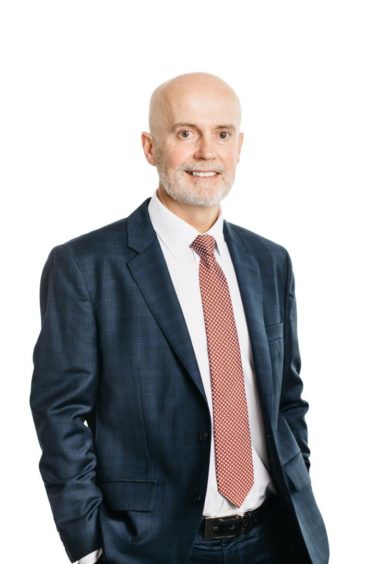
The age old debate of who gets what is likely to become even more fervent after the global pandemic.
With the coffers of governments across the world lying in ruins, politicians are going to have to be selective about where they spend public funds.
There have been widespread reports in recent weeks about the prominence of so called “zombie companies” – those that only survive because of government support – and the damaging effect that could have on the UK’s economic recovery.
In order to address this ticking time bomb, Douglas Grant, managing director at Conister Bank, says the key is for financiers to move beyond the “triage” of support loans that were initially drawn up by governments in March 2020.
He said there’s now a need for banks to identify small and medium sized enterprises (SMEs) that are able to stand on their own two feet and to channel funds there.
“If you take car hire at airports as an example, it’s difficult for lenders because there’s no customers in that space at the moment. There are a lot of expensive assets sat there not turning a wheel. If the UK Government wants car hire when the world does start spinning again, it should support that sector more advantageously and let the banks deal with other industries,” Grant said.
With the level of government and financial backing that the energy transition has enjoyed in the last year, Grant says an ideal space for lenders to target is green finance, which is likely to “survive and grow over the next 5-10 years”.
Conister, which is headquartered in the Isle of Man and is part of AIM listed Manx Financial Group, is currently identifying green sector businesses to help lead the UK’s recovery from the economic downturn.
It offers finance to SMEs with a focus on renewable energy and projects of around £1 million or less.
Grant said: “There have been very few businesses that have thrived over the last year and the SME market Is no different. We became accredited for both the UK Government’s business support schemes, something we wanted to do to because they’re specifically designed to support those smaller firms.
“If we don’t support the SME market through the hard times, there won’t be one there for us to lend into when normal resumes.”
But, Grant acknowledged that, due to the devastating effect Covid-19 has had on the economy, there are swathes of SMEs that are lost causes.
He added: “There’s a lot of companies out there with too much debt and no future – these are the ones which the press call ‘zombie companies’.
“At some point, those firms, which have been propped up, will fail and what we need to do is to identify which sectors are going to survive and have shown a level of resilience – those are the ones which we want to support.
“Green finance in the UK is going to be hugely buoyed by the government and therefore, for lenders, it makes a lot of sense to fall in and be the debt side for projects.”
Businesses specifically being targeted by Conister range from those looking to retrofit energy efficient boilers into homes all the way through to “bigger one off projects”.
Identifying opportunities through a mix word of mouth and membership of initiative, the bank has, to date, issued around £4m worth of green loans, with a further £17.5m due to be approved in the coming months.
Conister also finds firms on the lookout for loans through the broker channel, something Grant pinpointed as being a “really efficient way” for businesses to change their direction.
He said: “You set out the characteristics of you want to the brokers to find – in our case it’s SMEs that are after green finance. They then find the end customers – it’s a very effective model.”
One of the challenges that arises however is that, with so much emphasis currently on decarbonisation and net zero, it can be tough for firms to know where to start.
As Grant points out, everyone wants to be involved in tackling climate change but it’s “really difficult for people to understand how they can make a difference”.
In order to address this, Grant stresses the need for frank and open discussions about what needs to happen.
“I think about it like a chain. If I’m in the middle and the link to my right is my suppliers, I can engage with them and set out that we’re trying to reduce our carbon footprint and ask what they can do to help”, Grant said.
He added: “On the other side, if I’ve got a loan book with 5% green finance in it, I can actually help that by focussing more on renewables and swaying the books focus. What you’re actually demonstrating to your team is that you can make a positive difference, even as an individual in a small bank like ours.”

 © Supplied by Green Target
© Supplied by Green Target